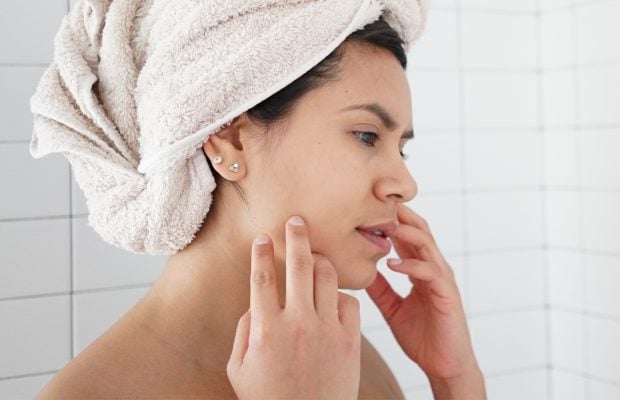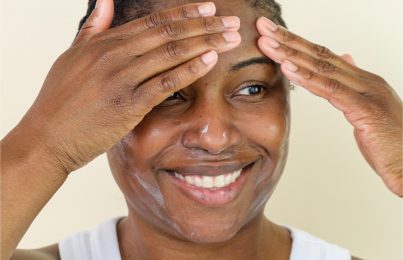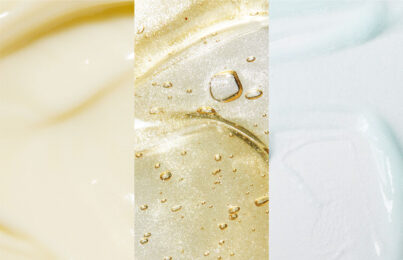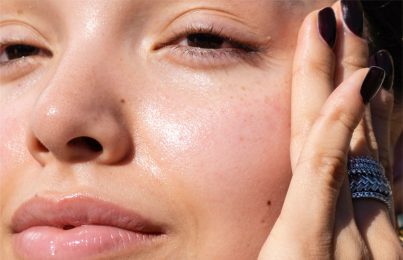Updated 03/15/23. Recently, I’ve been hearing a lot of talk about the concept of a “skincare detox.” I’ve also heard it referred to as a “skincare cleanse” and a “skin fast.” Whatever you call it, this trend involves stopping the use of all skincare products in order to “reset” the skin. The idea is that without products getting in the way, your skin can balance itself so that any conditions you’re struggling with—whether dryness, oiliness, breakouts, or sensitivity—will be resolved.
It makes sense that the trend would pivot from one extreme to another. It used to be all about an elaborate 13-step skincare routine. Now, it’s all about no routine at all. The question is, though, is this actually beneficial? Are we, in fact, using too many skincare products, and is a “skincare detox” the solution? Keep reading to learn my thoughts.
Will a Skincare Detox Really Work?
To answer this question, I want to start by talking about what the word “detox” really means. Medically speaking, detoxification refers to the removal of toxic substances from the body. When it comes to beauty, the word “detox” is unregulated. Its meaning is vague at best, which is why I like to think of it as a “reset.” In other words, your skin is acting up, so you strip everything down to bare bones. It’s kind of like cleaning up your diet after the holidays. You stop eating rich foods and go back to basics to feel more balanced.
In the case of skincare, I do think this can be beneficial, but I don’t think anyone should just stop using skincare products altogether. Instead, I suggest paring back your routine, so you can tell what your skin likes and (just as importantly) doesn’t like. In this way, a back-to-basics “detox” could really work. However, if you’re thinking that detoxing means removing toxins via a charcoal or clay mask, then the answer is no. Essentially, it comes down to how you define the term, “skincare detox.”
On that note, some people think if they start using “clean” skincare products, their skin will purge all the toxins from their old products. They go through extensive breakout periods, and they’re okay with it because they think their skin needs to break out to re-balance itself. This simply isn’t the case. The breakouts are likely due to two things. The first is internal/lifestyle factors. The second is using a product that’s not compatible with their skin type. And the word “clean” itself is just as vague and unregulated as “skincare detox.” In fact, there’s no legal definition. (Learn more about skincare marketing terms and what they really mean.)
Should I Try a Skincare Detox?
Before committing to a skincare detox, ask yourself, “what problem am I trying to solve?” If you can’t clearly answer this question, then a skincare detox might not be for you. That said, there are some issues that can be improved by a skincare detox:
Red, Irritated, and Reactive Skin
If your skin is frequently red and hot and/or it stings when you perform your skincare routine, chances are you have a damaged moisture barrier. There are a lot of different things that can cause this, but what I see most, is that people are overusing active ingredients and using products that are too harsh for their skin.
Doing a skincare detox, and by that, I mean paring down your routine, can help you identify which products are the root of the problem. From there, you can curate a skincare routine based on your specific skin type that agrees with your skin.
Eczema, Perioral Dermatitis, Rosacea, or Other Inflammatory Conditions
It’s not always possible to identify the triggers for these conditions. However, using the wrong products is, once again, a common cause for flare-ups. This tends to be more common in women since they often experiment with skincare more regularly.
Even if you’re experiencing a flare-up caused by environmental factors like allergies or weather changes, it can still be beneficial to strip everything back. This will make sure your products aren’t further aggravating your skin and making matters worse. Of course, if these types of issues persist, you’ll want to schedule an appointment with a dermatologist who can assess your individual needs. Conditions like eczema, rosacea and perioral dermatitis sometimes require a prescription, especially if you’ve simplified your routine and you’re not seeing improvement.
Should I Try a Skincare Detox If I Have Breakouts?
In my opinion, people who are struggling with breakouts probably won’t benefit from a skincare detox. Most acne, and especially adult acne, is caused by hormonal factors. Skincare products are simply used to help manage the situation.
That said, if you have breakouts, using harsh or overly drying products can actually exacerbate the situation. Breakouts happen when oil gets trapped inside pores by dead skin. This creates an environment where bacteria can thrive. If you’re using harsh or overly drying products, you could actually be making the situation worse by causing more dry, dead skin cell build-up. Not to mention, you could be causing excess irritation (irritated skin is more likely to break out than balanced skin). So, in this way, removing irritating products from your routine can create an environment where breakouts are less likely to occur.
What’s the Best Way to Go About a Skincare Detox?
Take it back to basics. Only use “boring” skincare products that are gentle, soothing, and free of irritants such as fragrance, artificial dyes, drying alcohols, and harsh sulfates. Like I said before, I don’t think it would be beneficial for someone to stop using skincare products altogether. Instead, look for products that include barrier-supporting ingredients.
While you’re getting your skin back on track, I suggest sticking to just three products:
- Cleanser
- Moisturizer
- Sunscreen
I’ve heard people say they skip moisturizers to let their skin “breathe.” I don’t suggest this, especially if you’re struggling with conditions like eczema or perioral dermatitis. First of all, skin doesn’t respire, so the idea of skin breathing is a myth. Second, moisturizer protects the skin and prevents water loss, which can lead to even more moisture barrier damage (always remember that skin cells are like fish—they need water to live).
If you go back to basics for a while and your skin improves, this means you’ve been using the wrong products for your skin type.
Once your skin has been in a good place for two weeks, you can slowly start to introduce other products back into your routine. The key is to introduce them one at a time so you can tell if something irritates your skin. You should also consider performing a patch test for each new product. (Read all about how to avoid a negative reaction to skincare products!)
How Many Skincare Products Is Too Many?
There is no exact number of skincare products everyone should use, but I have a general philosophy. I think everyone should use a gentle cleanser, an alcohol-free toner, a hydrating serum, and a moisturizer (which should include SPF in the daytime). Something to keep in mind is that our skin is like a sponge and can only absorb so much. At a certain point, things just accumulate on the surface of the skin.
I understand why people want to layer on all sorts of products. There are so many amazing ingredients available, and we all want to reap the benefits. While I do believe it’s good to use a variety of ingredients to give your skin a full spectrum of benefits, my philosophy is that it’s best to cycle through them, focusing on just one active a night, so it can do its job. Using too many actives at the same time risks irritation, which brings us back to the original problem that a “skincare detox” is meant to solve.
As an example, you might use a retinol serum three nights a week, followed by three nights of an exfoliating acid serum and one night of a hydrating serum with peptides and antioxidants. The exact products you use will depend on your skin’s specific needs. (If you want to find out which products are best for your specific skin concerns, take the Skin Type Quiz!)
The Bottom Line
While there may be a few people out there who are lucky enough to have skin that’s so well-balanced they don’t need to use products, most of us are constantly exposed to things that disrupt our skin’s barrier. Using the right products is one of the best ways to protect our barriers, so I never recommend forgoing products altogether. That said, if your skin is acting up, a “skincare detox” (AKA going back to basics) is a good way to identify whether your products are doing more harm than good.
Next, learn how to prevent your protective face mask from causing breakouts and irritation.
Celebrity Esthetician & Skincare Expert
As an esthetician trained in cosmetic chemistry, Renée Rouleau has spent 30 years researching skin, educating her audience, and building an award-winning line of products. Her hands-on experience as an esthetician and trusted skin care expert has created a real-world solution — products that are formulated for nine different types of skin so your face will get exactly what it needs to look and feel its best. Trusted by celebrities, editors, bloggers, and skincare obsessives around the globe, her vast real-world knowledge and constant research are why Marie Claire calls her “the most passionate skin practitioner we know.”



